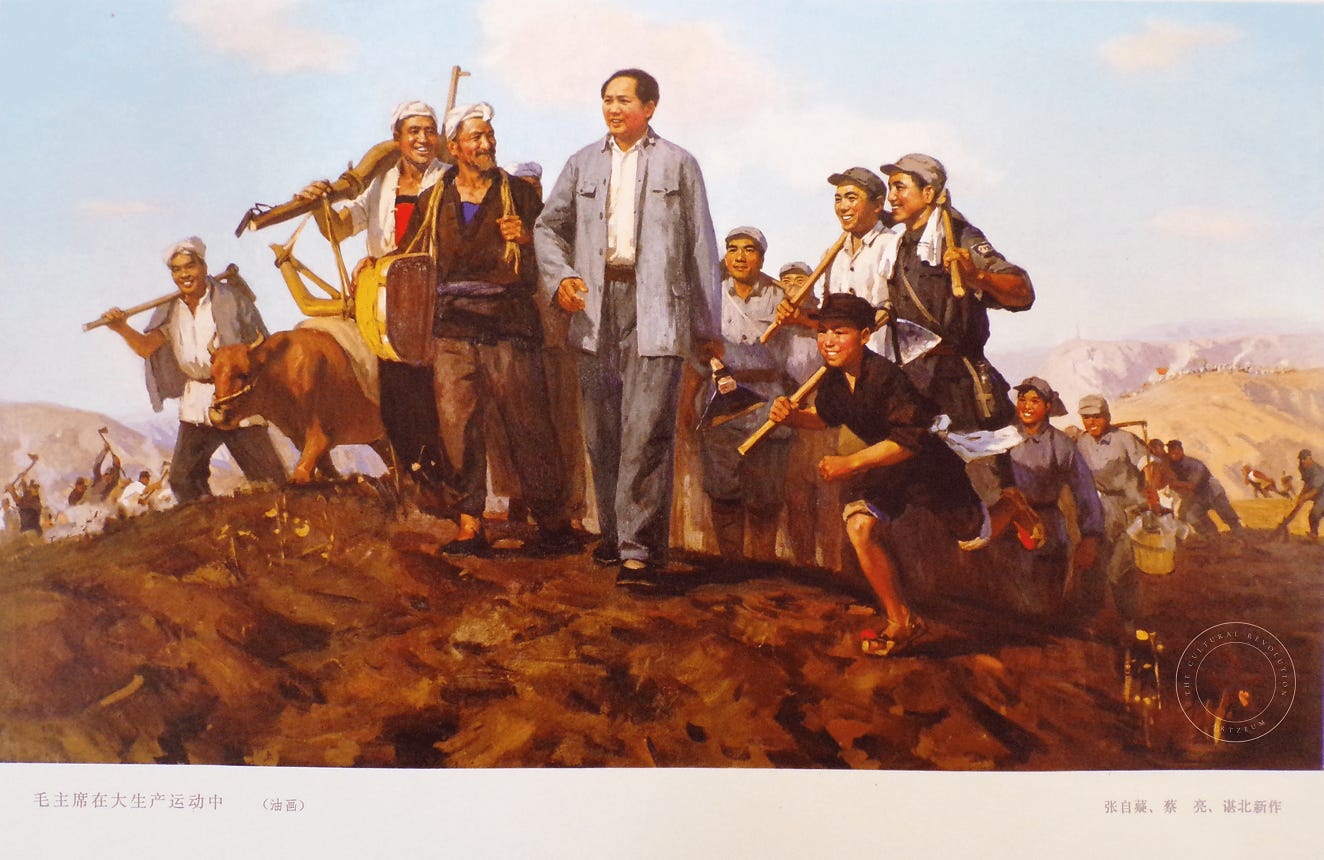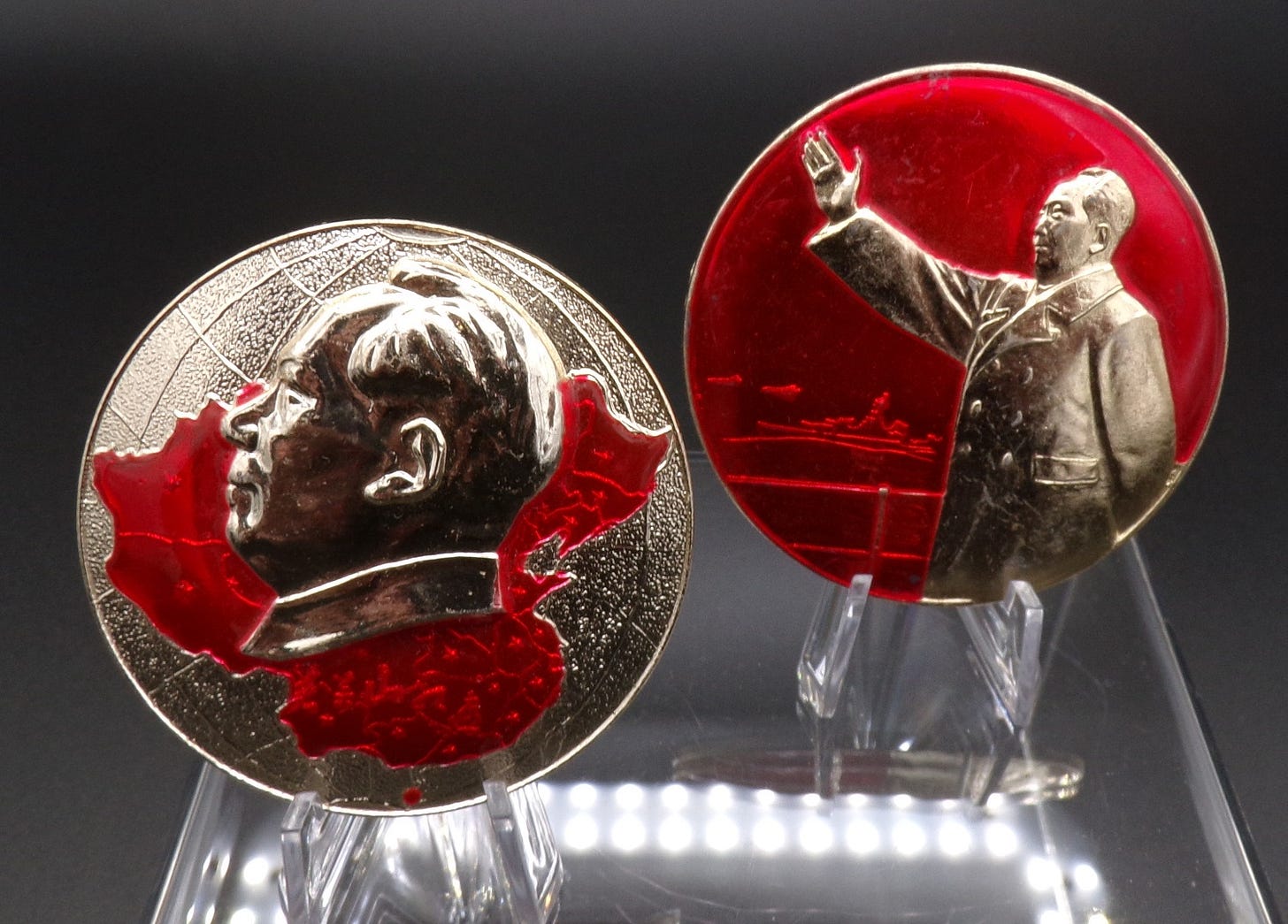Today, reading chapter three of Shaun Rein's book "The End Of Cheap China," I was touched by the account of his wife's family's experience during the Cultural Revolution. Growing up in a generation that referred to China as "The Bamboo Curtain" and the USSR as the “Iron Curtain," we knew nothing of what was going on—only that China was experiencing a "cultural revolution."
It wasn’t until the mid-1980s when I arrived in China for work that I began to understand what the Cultural Revolution was all about. Never, did I get the impression that Mao Zedong was the bad guy. The Chinese idolize Mao. He had a way with words. As a poet he connected to the hearts of the Chinese people. He was seen as one of them, and he magnetized the masses. Mao is remembered for a lot, but the one thing that sticks out for me are the many people who remember him for bringing electricity to the masses.
“Sure, Mao made mistakes, she said, especially as he aged, but overall he did good things for China.” —Lili Li, as quoted by Rein in his book.
As Rein mentions in chapter three, many in the West perceive Mao as the perpetrator. From the Chinese perspective, that cannot be further from the truth. The Gang of Four were the perpetrators. This group of perpetrators, led by Jiang Qing, a “wannabe” actress who never made it big—but married Mao, took advantage of the sway Mao had with the common folk to achieve their destructive deeds. In 1976, after ten years of the Cultural Revolution, Jiang Qing and the rest of the Gang of Four, were convicted of crimes against the Chinese people.
I have many Chinese friends who shared family experiences with me, giving me a first-hand insight into the varying levels of how the ten-year period affected individuals. The stories scale from “it was like a ten year vacation from school,” to “my husband was killed in the university school yard deemed a national ‘traitor‘.“ The fervor with which the followers, and the Red Guard, took over the country was not caused by Mao, it was instigated by the Gang of Four. Mao was simply a puppet to achieve their destructive scheme.
During conversations with friends, some bought out old copies of Mao’s Little Red Book, Mao Buttons, or other paraphernalia and show me. The usual response to my excitement at seeing them was—to give them to me. These were items that had been tucked away for twenty or so years and, for some, the memories were best forgotten.
Conversations around the Cultural Revolution would frequently include the names of high officials or other well-known personalities. Then, the question of why the government doesn’t get involved in investigations. The reply was always, “The government chooses to wait until all the people involved with the Cultural Revolution are gone before investigating it further.”
I took my newly acquired items home and added them to a growing collection as conversations continued. Over a five to ten year span, nearing the time when the Chinese Government officially banned the sale or trading of Cultural Revolution paraphernalia, I had built up a considerable collection and moved it around with me as I moved for jobs, to attend university in Inner Mongolia, and eventually home to the US.
It’s now been 30 years that I have “moved” this collection around the world. Finally, I decided to build an online space where to share a portion of my collection. It is a collection of art, utensils, and other expression from the Cultural Revolution period. You can see a cross-section of my collection here: The Cultural Revolution Artzeum.
Writing this article, I concernedly contemplate how political personalities have begun taking on eerily similar echoes to the Cultural Revolution—right here in the United States. Perhaps we can learn from the experience of China to avoid our own.
#maozedong #culturalrevolution #HeartOfChina #pointofview #perspectives #China #chineseculture #chineselanguage #understanding #knowothers






